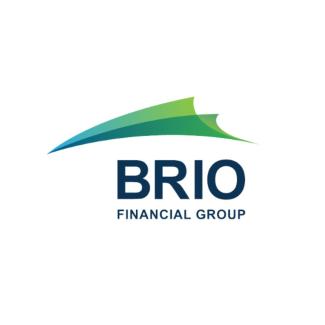
Who Is Your Trusted Contact?
by Brandon Miller on Nov 15, 2018
Investment firms have a new client service requirement. They must now ask you if you want to provide the name and information of a trusted contact.1
You do not have to supply this information, but it is certainly welcomed. The request is being made, with your best interest in mind, to lower the risk that someone crooked might someday make investment decisions on your behalf.1
Financial scams rob U.S. seniors of more than $36 billion per year. As a CNBC article notes, 27% of these frauds represent abuse or exploitation committed by third parties; 23% are wrongdoings committed by family members or trustees.1
The trusted contact request is a response to this reality. The Financial Industry Regulatory Authority (FINRA) now demands that investment firms “make reasonable efforts” to acquire the name and contact info of a “trusted person,” who they can get in touch with if they feel fraud or financial exploitation is occurring or if they suspect the investor is suffering notable cognitive decline.2
Investment firms may now put a hold on disbursements of cash or securities from accounts if they suspect the withdrawals or transactions amount to financial exploitation. In such circumstances, they are asked to get in touch with the investor, the trusted contact, and adult protective services agencies or law enforcement agencies if necessary.2
Who should your trusted contact be? At first thought, the answer seems obvious: the person you trust the most. Yes, that individual is probably the best choice – but keep some factors in mind.
Ideally, your trusted contact is financially savvy, or at least financially literate. You may trust your spouse, your sibling, or one of your children more than you trust anyone else; how much does that person know about investing and financial matters?
The trusted contact should behave ethically and respect your privacy. This person could be given confidential information about your investments. Is there any chance that, in receipt of such information, they might behave in an unprincipled way?
Your family members should know who the trusted contact is. That way, any family member who might be tempted to take financial advantage of you knows another family member is looking out for you, which may be an effective deterrent to elder financial abuse. The trusted contact can optionally be an attorney, a financial advisor, or a CPA.1
Your trusted contact is your ally. If you are being exploited financially, or seem at risk of such exploitation, that person will be alerted and called to action.
An old saying states that money never builds character, it only reveals it. The character and morality of your trusted contact should not waver upon assuming this responsibility. If given sensitive information about your brokerage accounts, that person should not sense an opportunity.
Now is the perfect time to name your trusted contact. You want to make this decision while you are still of sound body and mind. Choose your contact wisely.
This material was prepared by MarketingPro, Inc., and does not necessarily represent the views of the presenting party, nor their affiliates. All information is believed to be from reliable sources; however we make no representation as to its completeness or accuracy. Please note - investing involves risk, and past performance is no guarantee of future results. The publisher is not engaged in rendering legal, accounting or other professional services. If assistance is needed, the reader is advised to engage the services of a competent professional. This information should not be construed as investment, tax or legal advice and may not be relied on for the purpose of avoiding any Federal tax penalty. This is neither a solicitation nor recommendation to purchase or sell any investment or insurance product or service, and should not be relied upon as such. All indices are unmanaged and are not illustrative of any particular investment.
The opinions expressed in this article are for general informational purposes only and are not intended to provide specific advice or recommendations for any individual or on any specific security. It is only intended to provide education about the financial industry. To determine which investments may be appropriate for you, consult your financial advisor prior to investing. Any past performance discussed during this program is no guarantee of future results. Any indices referenced for comparison are unmanaged and cannot be invested into directly. As always please remember investing involves risk and possible loss of principal capital; please seek advice from a licensed professional.
Brio Financial Group is a registered investment adviser. Advisory services are only offered to clients or prospective clients where Brio Financial Group and its representatives are properly licensed or exempt from licensure. No advice may be rendered by Brio Financial Group unless a client service agreement is in place.
1 - cnbc.com/2018/05/15/advisors-are-asking-their-clients-for-a-trusted-contact-choose-wisely.html [5/15/18]
2 - finra.org/newsroom/2018/new-finra-rules-take-effect-protect-seniors-financial-exploitation [2/5/18]
